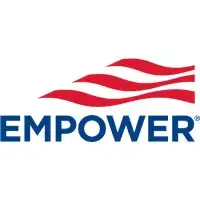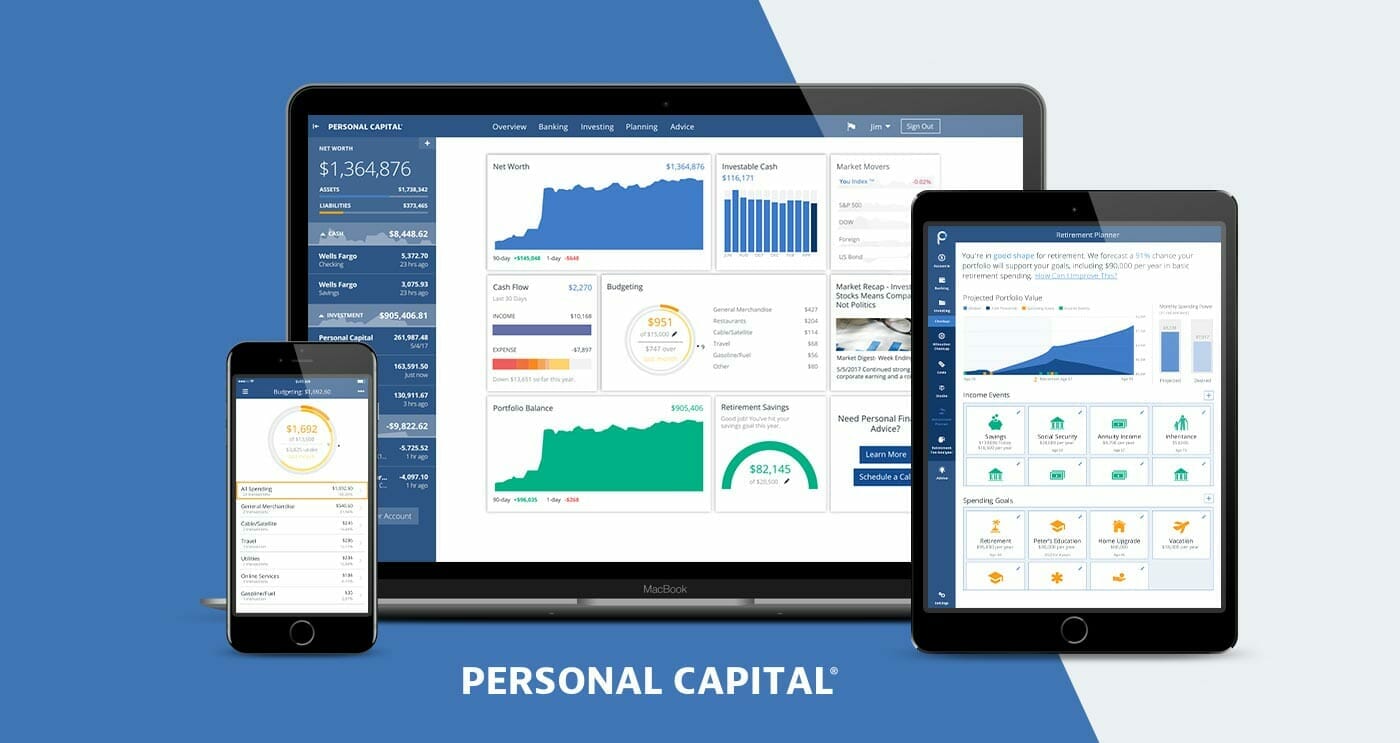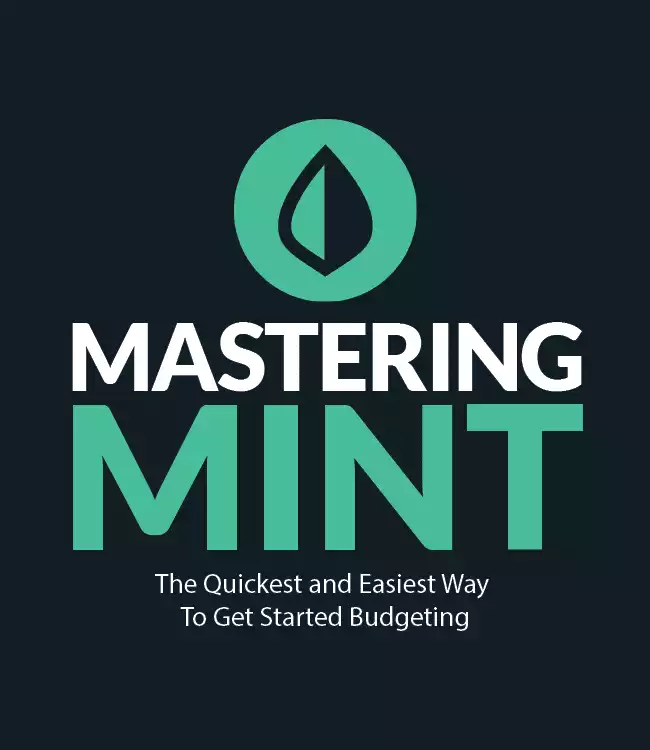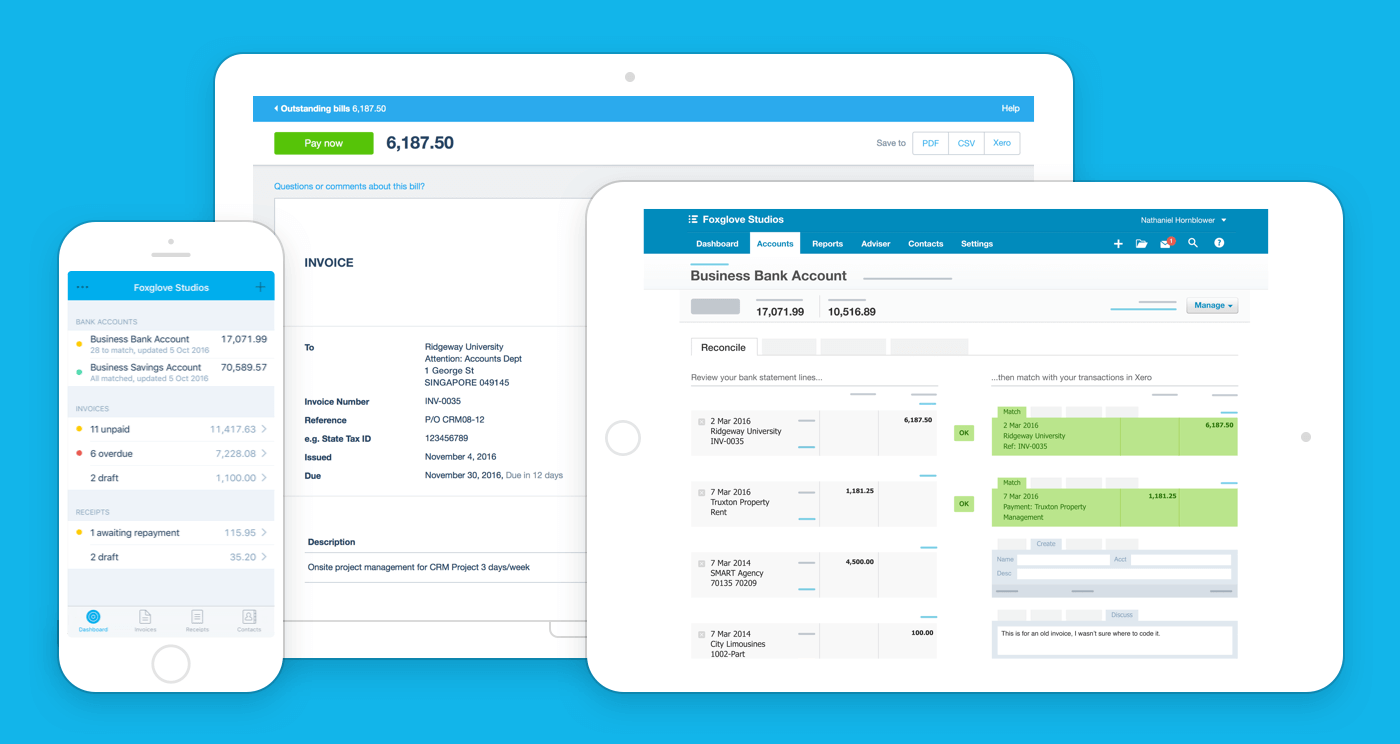Quicken is no longer the only game in town. This article uncovers 14 Quicken alternatives you can start using today. Simply put, if you’re searching for exceptional accounting software that integrates into your money management system, you’ll enjoy this post.
Quicken had a lock on the market until the competition outpriced it. There are several versions of Quicken.
The basic version allows you to track and pay bills, set up bill alerts, automatically import transactions, categorize spending, create a budget, and generate your credit score.
Many of the alternatives are free.
Why Switch to a Quicken Alternative?
Since Intuit sold Quicken, no one is sure of its future. That desktop-based technology is becoming increasingly outdated, so it’s not outside the realm of possibility that they will discontinue the program.
It’s also been immensely underwhelming for many users since HIG Capital bought them in 2016. The software seems to lag behind the rest of the fintech universe.
If you want to use the Quicken mobile app, you must buy and sync the software with your home computer.
If all this sounds like a hassle, check out some of the best alternatives for your money management.
Quicken Alternatives for Personal Accounting
1. Personal Capital
Personal Capital is our favorite, and it’s free to use. Whereas some quicken alternatives only focus on spending, Personal Capital also focuses on investment tracking and retirement planning. Your overview will show your expenses and your investment portfolio.
With Personal Capital, you can see your entire financial life in one place and get many powerful financial tools for free.
We’ve talked about how lethal fees can be to your savings, and Personal Capital has a fee analyzer to show how much you’re paying. The site will also help you set your asset allocation.
Personal Capital also has the typical budgeting software features like a list of upcoming bills. You will also get regular summaries of your spending and investing portfolio.
All you have to do is link your online banking accounts – checking, savings, credit, and investment accounts, and Personal Capital does the heavy lifting for you.
Personal Capital ticks a lot of boxes towards helping reach your financial goals.
It uses your financial data to help you plan for retirement and optimize your investment strategy. Here is our in-depth Personal Capital review if you want to know more.
Personal Capital is Now Empower - Track your entire portfolio for free.
All your accounts in one place
- Plan for retirement
- Monitor your investments
- Uncover hidden fees
2. Moneyspire
Moneyspire is a great way to see your overall financial picture so that you can take control of your budget.
See all of your account balances and transactions in one place and know precisely where your money is going.
Moneyspire also allows you to set up bill reminders, so you hopefully never forget to pay a bill again.
One of the best things about Moneyspire is that they respect your privacy.
Their online features won’t force you to put up your data or personal information. All information is kept on your computer.
One stand-out feature of Moneyspire is there is no subscription. Once you buy, it’s yours to keep and use forever.
If you are already using Quicken and dread switching over to a new product, no worries; Moneyspire lets you freely move from your existing personal finance software with its extensive importing options.
Easy to use, powerful software to manage your money. See all your balances and transactions in one place with as much detail as you need. They even have customizable, interactive reports to help you understand everything about your finances.
3. Mint
Mint seems like the natural choice since Intuit owns it. It’s free and an excellent way to budget your money and track every dollar you spend.
We have recommended it for a long time. It’s easy to use and has a lot of convenient features that help monitor your spending.
It issues weekly spending summaries, fee alerts, notifications when you get close to and go over a budget category, and your credit score.
Your transactions sync automatically, so you don’t have to enter things manually. Bill Tracker lets you receive notifications of bills due and pay them online.
You can set up goals in Mint, things like saving for a down payment or paying off credit card debt and see your progress towards those goals.
Where it falls short is in its investment tools.
There are better services for that which we’ll explore. You can’t import data from another site or software into Mint, so if you’re using Quicken and want to continue to have access to that data, Mint will not be ideal.
While Mint mostly does the work for you, sometimes it categorizes expenses wrong, and you have to go in manually to correct them.
An excellent free budgeting tool. I use it, and if you're getting started, you should too. If you don't track your spending, you'll never know where you're wasting money.
4. You Need a Budget
You Need a Budget (YNAB) is an online budgeting tool and a personal finance app that follows the zero-based budgeting system. The cost is $11.99 per month or $84 per year.
You can test drive it for a 34-day free trial.
If you need to pay off debt or if you have irregular income (freelancers, real estate agents, etc.),
You are budgeting with the money you made the previous month, not the money you will be making the following month (aka aging your money).
YNAB uses the Four Rules when budgeting:
- Give every dollar a job
- Embrace your true expenses
- Roll with the punches
- Age your money
The budgeting tool for the person that budgeting doesn't work for. YNAB has a unique approach that's based on forming positive habits. Their Four Rules will stop you from living paycheck-to-paycheck. It also supports multiple currencies!
5. EveryDollar
EveryDollar is another zero-based budgeting tool created by Dave Ramsey. It lets you add your monthly income, plan expenses, and track your spending. The app has both a paid ($129 annually) and a free version.
Syncing your financial accounts and streaming transactions automatically is part of the paid version, EveryDollar Plus. This version also gains you access to Dave Ramsey’s Financial Peace University (call-back support and coaching calls).
6. CountAbout
CountAbout does allow you to import data from Quicken, so for many of you, no matter what else is good or bad about it, this is all that will matter. It isn’t free to use, but it’s not expensive either.
The Basic program costs $9.99 a year, and Premium is $39.99 per year. The basic service does not include automatic downloading of transactions from banks, credit cards, etc. so unless you want to enter data manually, you’ll need to pay for the upgrade.
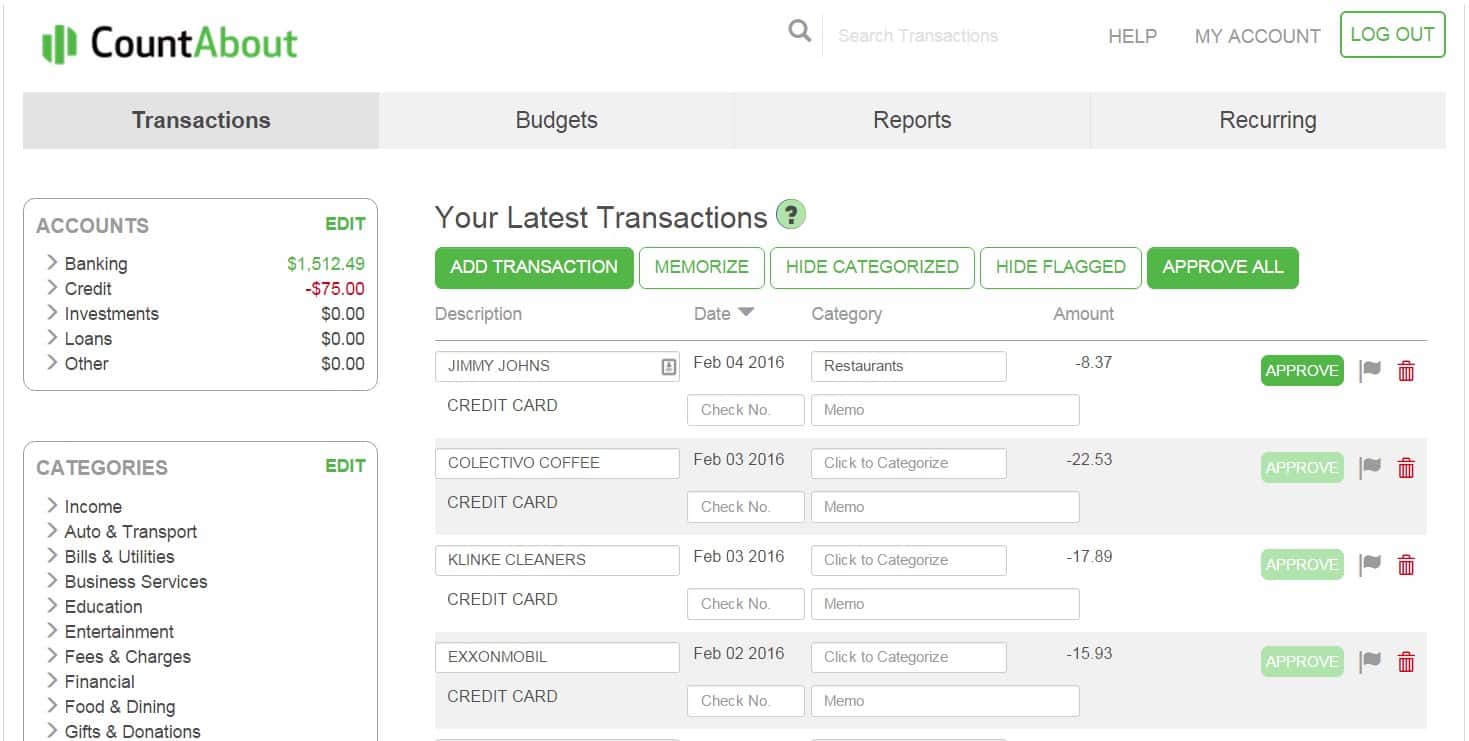
CountAbout lets you track spending, create and manage budgets, and set your categories. However, you can’t transfer money between accounts or pay bills. It’s primarily a budgeting app and doesn’t offer investing help.
However, it does include a 15-day free trial for those interested in using the platform.
7. GNU Cash
GnuCash is a full-on accounting program, so if you want something that is more like a bookkeeping system and less like a budgeting system, this is a fine Quicken alternative.
GnuCash is free to download. It does have a budgeting feature that allows you to track bank accounts, stocks, income, and expenses. And it also handles small business affairs like multi-entry bookkeeping and printing checks.
It can import transactions and even give you stock quotes. You can set up several account types both for personal and small business including credit cards, investment accounts, accounts receivable and payable.
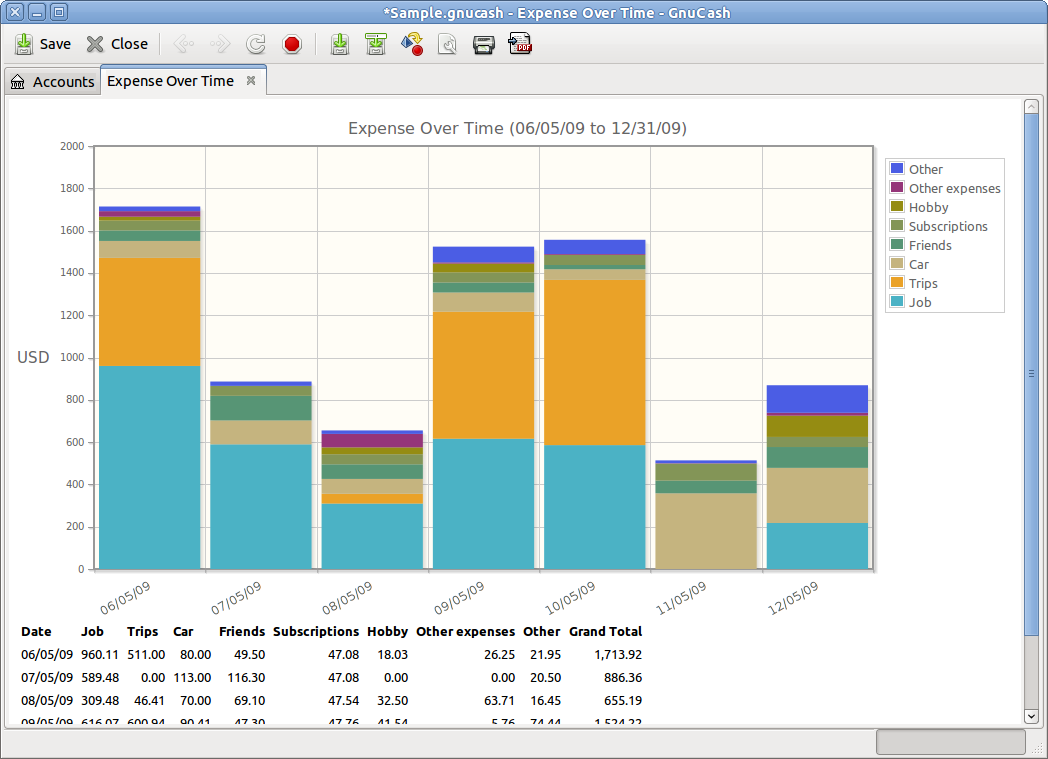
GnuCash has a lot of features for small business bookkeeping, including invoicing, billing terms, and payroll.
You can generate custom reports both for personal and small business finances like income and cash flow, net worth, income statements, receivables and payables aging, and balance sheets.
The only issue is that it’s not nearly as customizable as some paid-for rivals, especially when it comes to invoice design.
8. MoneyDance
MoneyDance is personal finance software for both Mac and Windows. Its online banking feature automatically downloads transactions, makes bill payments, and categorizes spending.
It also lets you generate reports to track income and expenses, set up payment schedule reminders, and follows your investments (both total value of investments and performance).
You can get the mobile app for either Android or iPhone devices. It currently costs $49.99 and comes with a 90-day money-back guarantee. MoneyDance also features a free trial, letting you manually enter 100 transactions.
9. Banktivity
Banktivity is personal finance software for macOS and iOS users. It boasts, on average, customers save over $500 a year and 40 hours of time.
It’s a digitized version of the old school Envelope system where you stuff cash into various envelopes and assign each envelope a category (e.g., rent, utilities, dining out). Once the money runs out of the envelope, you’re spending in that category is done.
Envelope budgeting with software.
Banktivity has a robust set of free resources including free weekly courses, their Personal Finance 101 blog, and a US-based technical support team.
Banktivity 7, its newest version, connects all of your accounts in one place, sells for $69.99, and comes with a 90-day free trial.
10. Tiller Money
Tiller is a budgeting spreadsheet that integrates with Google Sheets or Microsoft Excel. It automatically monitors transactions, spending, and account balances.
Subscribers get a pre-built dashboard and reports regarding financial insights, monthly and yearly sheets, net-worth at a glance, and customizable categories sheets. You can also see your money trends.
Because it’s cloud-based, you can share your template with both family and colleagues.
You can sign up for a 30-day free trial after which you’ll be charged $59 a year ($4.92 monthly).
11. PocketSmith
Connect to over 12,000 global financial institutions with automatic bank feeds for easier transaction imports.
Create your budget calendar to schedule future bills while every transaction is categorized. The “what-if scenarios” feature lets you see the impact of your financial decisions both short and long-term.
This feature comes in handy when forecasting into the future.
Their Flexible Budgeting lets you shape budgets based on relevant periods in your life and doesn’t need to start on the first of the month.
Track your net-worth. Use reports to track income and expenses. The cash flow statement breaks down your historical and future financial activity by month.
PocketSmith integrates with Mint and Xero. If you’re already using either one of those services, PockeSmith might be a good fit.
Subscriptions run monthly, quarterly, and annually. Prices range between $9.95 monthly to $169.95 annually depending on which package you buy. There is also a free option (their basic plan for the casual budgeter).
This is our guide to budgeting simply and effectively. We walk you through exactly how to use Mint, what your budget should be, and how to monitor your spending automatically.
Quicken Alternatives for Business Accounting
12. FreshBooks
FreshBooks is cloud
There are three tiers of service ranging from $15 to $50 per month and a free 30-day trial for them all.
It’s a cloud-based service, so there is no financial software to download. You can invoice your clients (how many clients depend on the tier you subscribe to) and save the information for future invoices.
You can track outstanding invoices and re-send them automatically after 30 and 45 days.
FreshBooks works with several merchant account providers, including PayPal, Google Checkout, iTransact, and Authorize.net. It also integrates information from accounting programs like
Apart from invoicing, FreshBooks features time tracking, expense tracking, and credit card processing.
13. Xero
Xero is a cloud-based accounting system founded in 2006. It is a real accounting program for small businesses, not just a budgeting system.
Three plans are ranging in cost from $9-70 per month, and you get a free 30-day free trial.
Xero can do the typical things a small business needs from an accounting program. Some of Xero’s features include invoicing, inventory tracking, standard and custom reports, payroll, bank reconciliation, expense claims, quotes, and sales tax.
Not all features are available at every tier.
There is also integration with hundreds of iPhone apps, like time trackers and point of sale apps like Square and PayPal so you can customize the system even more.
Xero doesn’t put a cap on the number of users, so all of your employees can access the service.
Your bank accounts and credit cards sync automatically. You can also transfer data from other programs like Quickbooks.
If you want to get value from Xero, you want to choose a plan above the Start Plan. You are allowed five invoices and 20 transactions a month, which is not going to be enough for most small businesses.
If you need your accounting system to handle payroll, make sure your state supports it, not all currently do.
14. Wave
Quicken alternative Wave is a cloud-based accounting, invoicing, and bookkeeping program. The program is free to use and comes with standard features like unlimited invoicing, expense tracking, personal and business accounting, and reporting.
There are additional features available for a cost. Payroll begins at $15 per month plus $4 for each employee.
You can process credit card payments through Wave for 2.9% plus $0.30 per transaction.
The ability to separate and track both personal and business accounts in one place makes Wave a standout.
Editor's Note
Wave is suitable for tiny businesses like freelancers or contract workers who don’t need all the extra features of more sophisticated programs.
Despite some upgrades, there are still complaints about downtime. If you want tech support either by phone or chat, it’s $19 per month. If your business starts to grow, it may outgrow Wave.
Our Recommendations for Quicken Alternatives
Personal Finances
If you are just using Quicken for your personal finances, make the switch to Personal Capital. It does everything you need to stay on top of your finances.
You will have access to great tools like the fee analyzer and asset allocation recommendations and the retirement planner.
You can budget, keep track of your expenses and your investments in Personal Capital.
Business Accounting
It’s hard to beat free and convenient, and Wave is both. This Quicken alternative allows you to have your personal and business accounting in one place.
It gives you much of what freelancers and contract employees need at no cost and is one of the simplest, most intuitive programs available.
Final Thoughts
There have been no announcements that Quicken will cease to exist, but if you’re nervous, you have time to try out some Quicken alternatives. If you have to stop using it, you’ll know which program to choose.
